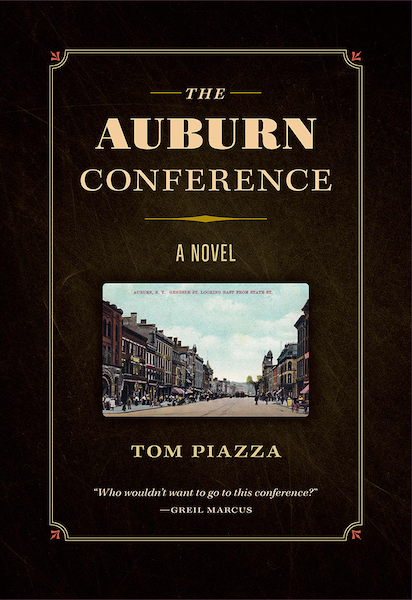A Demand for Justice
Activist Justin Jones recounts the 2020 occupation of Nashville’s Legislative Plaza
A rising star in the fight for racial justice, Nashvillian Justin Jones chronicles his activism in a new memoir, The People’s Plaza: Sixty-Two Days of Nonviolent Resistance.

Jones’ book begins in March 2020, a notably troubled time. Tornadoes had just ripped through Middle Tennessee, devastating communities including North Nashville, and citizens were entering the first COVID lockdown. Then, in May of that year, the whole country was horrified by video of George Floyd being brutally murdered by Minneapolis police.
At the time, Jones — a Fisk University graduate who grew up in California — was a budding activist and a divinity student at Vanderbilt. On May 30, Jones and his fellow activists gathered to protest at the Capitol, demanding justice for Floyd and accountability for police in Nashville. Mayor John Cooper spoke, but Jones and others were deeply unsatisfied with his speech, which never mentioned Floyd by name. So, Jones and his followers agreed to continue their pressure on Tennessee leadership.
The next night, Jones and other activists approached the Capitol singing “This Little Light of Mine,” as a wall of state troopers guarded the building with shields and helmets. Jones writes, “We had to do something to shine light on the issue — an appropriate response to police brutality was not a more visible and militarized police state.”
He spoke to the troopers through a megaphone. “We are nonviolent, we are peaceful,” he said. “Will you lay your weapons down?”
One by one, the troopers put down their shields and raised their eye protectors on their helmets, exposing their faces. This would be Jones’ viral moment.
 Spurred by this momentum, Jones and his friends planned an occupation-style protest to occur outside the Capitol in an area known as Legislative Plaza. They arrived on June 12, 2020, and planned to stay as long as it took.
Spurred by this momentum, Jones and his friends planned an occupation-style protest to occur outside the Capitol in an area known as Legislative Plaza. They arrived on June 12, 2020, and planned to stay as long as it took.
The group wrote up a list of demands, which included defunding and demilitarizing the police, removing statues of racist historical figures, and firing Nashville police chief Steve Anderson. They had a team of devoted occupiers who stayed overnight and an extensive network of supporters.
“We came together,” Jones writes, “to make the Plaza an evolving and growing space that modeled, as best we could manage, the type of world we wanted to live in.”
Over the course of the book, Jones — who is currently running for a seat in the Tennessee House of Representatives — recounts challenges, small victories, and coordinated attacks from the state. Jones and the other activists were arrested multiple times. The governor also ordered the police to perform periodic raids to rid the protestors of their vital supplies, like water, food, and even medications, in an effort to weaken their resolve.
“The Plaza belonged to the People,” Jones writes, “but the Capitol remained the private fortress of a governor and his allies in the legislature.”
Still, Jones and his followers remained throughout the miserably hot months of June and July.
One of the things that I kept noticing while reading Jones’ account was how much of his organizing didn’t have a playbook. The marches were fluid, the speeches unscripted, and the interactions with police were always an exercise in improvisation. Given that he was only 24 at the time of the protest, I was amazed by how deftly he navigated some of the most fraught situations.
Jones repeatedly offers credit for this wisdom to his mentors, including Rev. Dr. William Barber II, who wrote the foreword for The People’s Plaza; civil rights icon and Presidential Medal of Freedom recipient Diane Nash; and the late Congressman John Lewis. He places today’s activism within their tradition. “The very same streets that we walked surrounding the Plaza were the streets they marched in the 1960s on the way to sit in at the downtown lunch counters,” he writes.
On August 12, 2020, two months after they began their protest, the Tennessee legislature passed an anti-protest bill that made camping on public property, including Legislative Plaza, a felony. The occupation was over.
“The governor, the troopers, the prosecutors, and the lawmakers,” Jones writes, “had all worked in tandem to shut us down. The People’s Plaza was an act of protest, but it had also become a symbol of something they wanted to censor and erase.”
I hope that the publication of The People’s Plaza will ensure that this occupation isn’t erased from the history books. Justin Jones and his fellow protestors never got the audience with the governor that they sought, but readers who give this book their time will be rewarded with Jones’ unique vision for a more equitable and just world.

Caroline Siegrist is a Nashville-based writer. Her work has been featured in The Washington Post, Rock & Sling, Mockingbird, Hippocampus, Cool Mom Picks, and more. She lives with her husband and two young children.


